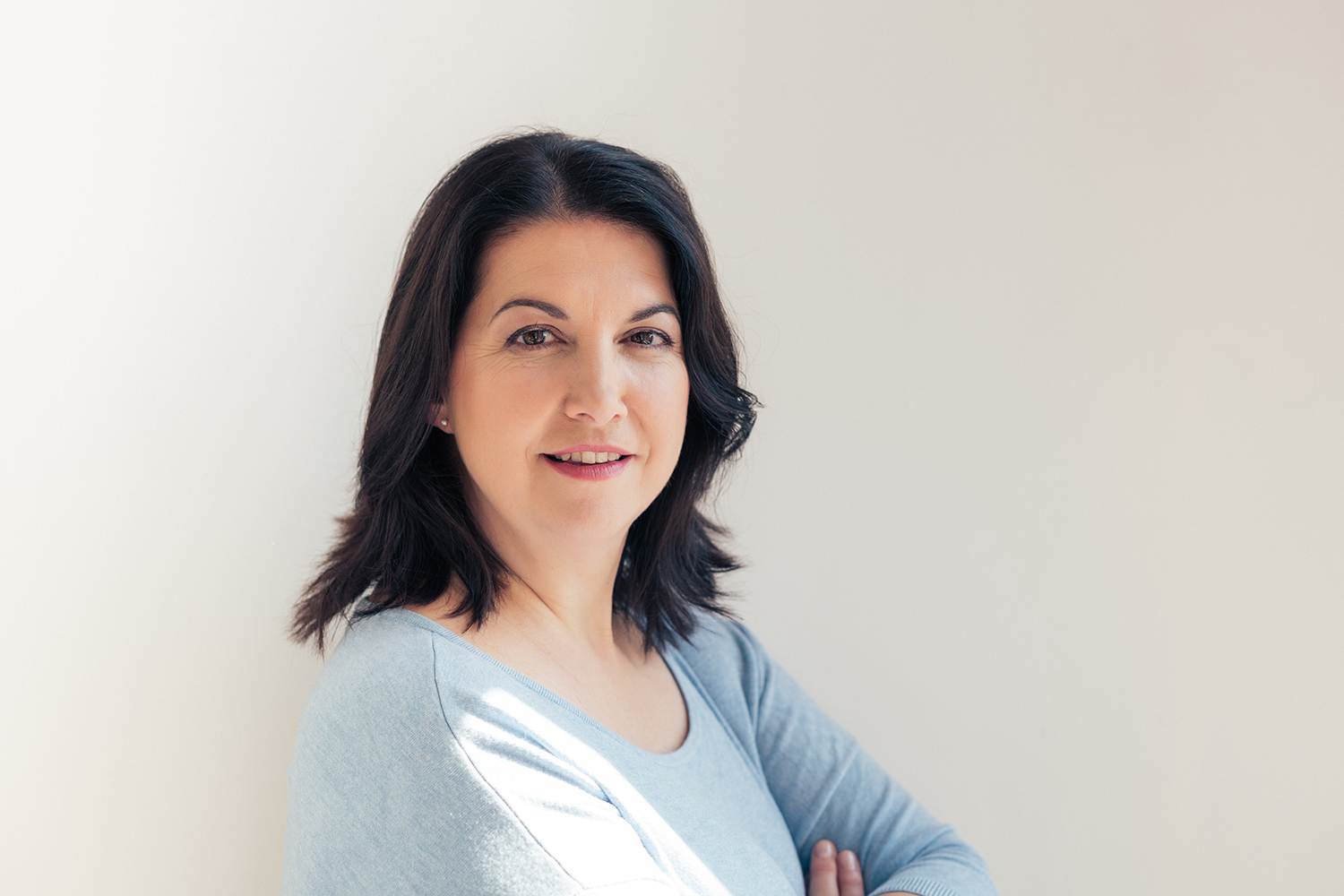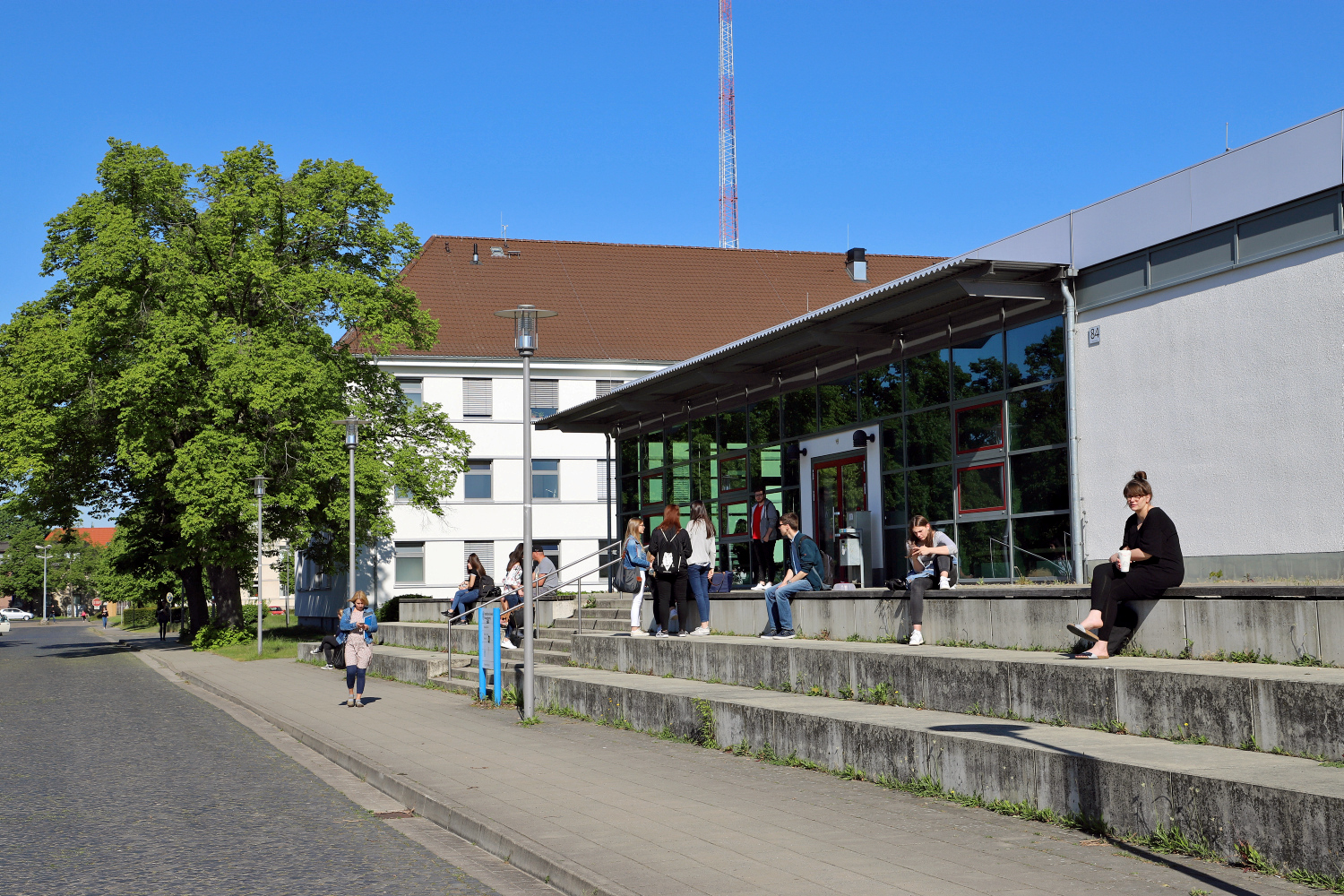Literature creates reality Professor Julia Schöll on the "Gegenwartspoetiken – Literatur im öffentlichen Raum" project
How does literature stage itself in public spaces and how does it engage with the state of society? These are the questions addressed by Professor Julia Schöll from the Institute of German Studies’ project “Gegenwartspoetiken – Literatur im öffentlichen Raum” (Contemporary Poetics – Literature in Public Space), funded by the Volkswagen Foundation. Bianca Loschinsky asked the literary scholar which texts are the focus, what role the future city plays, and when we can look forward to a literature festival at the North Campus.

Professor Julia Schöll’s research project examines how literature stages itself in public spaces and how it engages with the state of society. Photo credits: Ingo Foertsch
Professor Schöll, what specifically will you be investigating in your new project?
Our project “Gegenwartspoetiken – Literatur im öffentlichen Raum” (Contemporary Poetics – Literature in Public Space) is about the status of literature in the present and in society. What theses does literature make about the state of our society? Contemporary literature deals with digitalisation and artificial intelligence, among other things. There are numerous texts that deal with subject construction, identity, migration and ethnicity, or those that deal with history and the traces that history leaves in society.
The project also deals with literature in public spaces, i.e. how authors stage themselves and how present they are in public spaces – be it through readings or poetry professorships, but also in virtual reality. Many authors have their own websites, they blog or post on Instagram. Some, like Elfriede Jelinek, make entire texts freely available on the internet to defend themselves against market mechanisms. In this project, I would like to illuminate some parts of this huge field.
When we talk about public spaces, which spaces are we talking about?
This is actually about all public spaces. The project is part of the research focus “Future City”, because literature can be found almost everywhere in urban space. Starting with the university, where on the one hand, literature is treated as a subject and on the other, authors are guests in a wide variety of event formats. We have the large area of theatre, where literature is staged, and increasingly also outside of institutionalised spaces, so that literature is brought into the city.
The basic assumption of the project is that literature not only reflects what happens in society, but that it is a very essential factor in the construction of what we call society and space. It co-constructs our reality.
How can we understand this, that literature creates reality?
One interesting area for TU is utopian or dystopian literature, which quite often thinks about what is now and takes it one step further. For example, I just gave a lecture at a conference on Juli Zeh’s novel “Empty Hearts”, which some people at our university now know through the project “Eine Uni – ein Buch” (One University – One Book). In the book, the current social situation is thought through and projected into the year 2025. Literature has always been the medium of “what if …”.
In addition, there are some dystopian novels that deal with the environment. And, of course, science fiction. Many technology researchers are fans of science fiction novels because they are inspired by them and literature can think of things that are not yet materially present and not realisable at the moment, but perhaps in the near future.
Literature also deals with the past, that is, with what we were and what the ways we are at the moment will lead to. It shows us what shapes us.
The project “Gegenwartspoetiken” is part of the research focus “Future City”. What role does literature play in the city and for the future city?
Of course we are not the first and only institution in the city that tries to bring literature into public spaces. In Braunschweig we have the theatre, literature houses like the Raabe House, public readings, etc.. But I think that especially the university plays a very big role as a mediator of literature for the urban space, because it can be the bridge to the urban society. An important part of our project is an outdoor literature festival on the North Campus. Here we deliberately decided to include children’s and young people’s literature so that schools also gets a space. Before the pandemic, it was much more natural for authors to read in schools.
My objective is also to bring the urban society closer to the university through the festival – and with the North Campus, to invite people to a place where they do not go every day. In this way, we can turn this space into a discoverable terrain through literature.

A literature festival will take place on the North Campus on 24 June. Photo credits: Markus Hörster/TU Braunschweig
Why should readings still exist at all, why are they important?
You might ask yourself that, of course, especially since most novels today are also available as audio books. But I think it’s a unique opportunity to be read to together. I enjoy it very much when I am read to myself. Through the reading, I get the authors’ own interpretation of the text. It’s ‘literature you can touch’, so to speak. After the reading, I can discuss the texts with the authors or with other listeners. So, the reading is a discursive place. Just like the poetry professorship we’ve had in Braunschweig to date, where you exchange ideas about what you’ve read – directly and not via blogs or book reviews in internet shops.
In the course of my life as a reader, I have listened to a great many readings and it is not uncommon for texts that did not appeal to me at all when I read them myself to suddenly become accessible to me through the performance. John Irving is a good example of this. I’m not a big fan of his novels, but when he reads aloud, it’s incredible! He is a great reader.
I know from many encounters with authors that readings are also very valuable for them because they get these immediate reactions, because writing is a rather lonely business and some people write for years on one text. In a performance society, readings are indispensable for them to get noticed. Because the abundance of literature that is published is now unmanageable. So authors have to position themselves in this space.
Which texts are the focus of the project?
In principle, we are interested in everything in contemporary literature. It is very important to me that theatre texts are included that are also staged here in Braunschweig in order to make them accessible to students and to carry out a transfer process. I want to bring people from the theatre who stage texts, whether historical or current, to the university. Because even if it is a very old text, such as “Maria Stuart” by Schiller, a new text is created through the staging. These are exciting processes that I would like to look at with the students.
A literature festival at the North Campus is also to be part of the project. Can you give a preview of it?
The festival will take place on 24 June from 3 pm as an outdoor event. We want to use literature as an opportunity to celebrate community at TU and attract people to the North Campus, which is a cool space by the way! We have these big green spaces here and further back the old garages. There will also be a festival atmosphere: there will be a food truck and a popcorn machine!
Who will be the guests?
In the afternoon, two award-winning authors of children’s and youth literature will read, Tamara Bach and Nils Mohl. In the early evening, Yannic Han Biao Federer and Jenny Erpenbeck will read from their current novels – in other words, a newcomer on the one hand, and a long-established author of contemporary literature on the other.
Including readings for children and young people was also important to us in the planning. On the one hand, we are training future teachers who will deal with precisely this literature during their studies and in their future professional lives. We also want to build a bridge to the schools and teachers. And of course, many colleagues from all faculties have children of their own who might like to cycle over the Ringgleis to the North Campus on Friday afternoon and listen to literature and talk to the authors. We would like to convey to the children that literature is something alive that does not take place in the classroom, but also outside on a picnic blanket with a bag of popcorn in hand. We want to have a nice day with literature. And if it should rain, we’ll simply go next door to the lecture hall.
